With its crowdfunding goal already met, the makers behind the Elwing electric skateboard have set their sights on delivering backers a compact, commuter-focused riding experience. AppleInsider had a chance to go hands-on with the prototype hardware ahead of a 2017 launch.
The official Indiegogo campaign for Elwing already surpassed its goal, but backers can still get in on early bird pricing of $599 plus shipping. When the Elwing ships to new backers, estimated for next spring, the full retail price will be $749.
While that may sound like a lot, it's actually more affordable than most of its competitors, including the and the Boosted Board, which starts at $999, as well as the $1,399 Inboard M1.
One of the key differences with Elwing's product is size: While the likes of Boosted, Inboard and Yuneec are heavier longboards for smooth rides across a variety of terrain, the Elwing achieves a more portable weight under 10 pounds thanks to a shorter deck. The Elwing also boasts a built-in handle at the nose of the deck, which creator Quentin Sartorius noted is short enough that most people can carry with their arm fully extended, without having the bottom of the deck scrape the ground.
With a 7-mile riding range, the Elwing also doesn't offer as long of a commute as some of its competitors, which is another conscious decision made to keep the board compact and lightweight. The charge time is rated at 45 minutes, and the board has a top speed of up to 18 miles per hour, while its quiet in-wheel hub motor is claimed to handle a 10 percent uphill grade.
And while Elwing's 31-inch maple deck (with kicktail) is short, the board has larger 83-millimeter wheels that allow it to handle rougher rides on a typical city commute. As Sartorius explained, virtually everything about the Elwing was designed specifically for city riding.
In fact, the Elwing is so light that testers who have shared videos on Elwing's Facebook feedback page showcase themselves actually doing ollies and kickflips with the 9.9-pound board.
While it won't be available at launch, Elwing is working on iOS connectivity, with an iPhone app currently planned to launch by the end of 2017. The app is planned to deliver software updates to the board via Bluetooth, while also providing navigation data including top speed, average speed, and distance traveled.
With the iPhone app, users will also be able to lock their board, preventing theft, and also save the last location where it was connected. Custom riding modes will also be configurable.
Finally, Elwing is also planning for its iPhone app to facilitate maintenance and customer service for the board, including providing data about the health of the motor and battery.
While the battery is not swappable in a traditional sense, it will be user-replaceable. Sartorius said that six screws atop the maple board will be removable with a tool, allowing the battery compartment at the bottom of the board to be removed.
The point here is to ensure that the board will last for years to come when the lifespan of the battery has shortened. With the planned iPhone app, users will have an idea when their battery's usefulness is fading, and can plan ahead by ordering a replacement.
The first Elwing boards are planned ship to early backers in April of 2017, with a public launch said to be soon after. It should be noted that crowdfunding campaigns frequently miss their stated shipment schedules.
However, AppleInsider had a chance to try a prototype Elwing board this week in Central Park, meaning it isn't just some pie-in-the-sky product. While we're far from seasoned riders, the hub motor on the prototype board was enough to get us moving even without a push to start. Braking was gradual enough that we didn't get tossed from the board when coming to a stop.
Sartorius noted that while some have used the kicktail for ollies and other tricks, most riders will appreciate it for the basics of hopping up on curbs or simply picking up the board. The handle built into the nose of the deck was particularly convenient for portability.
For now, the prototype Elwing uses an off-the-shelf plastic remote. The final remote is planned to be a unique design with a finger ring to ensure the rider doesn't lose it.
Unlike some other boards, which use iPhone apps to allow the rider to control the board itself, Elwing has no such plans for their deck. They see such use cases resulting in the need for costly repairs if a user were to tumble from the board and shatter their iPhone.
 Neil Hughes
Neil Hughes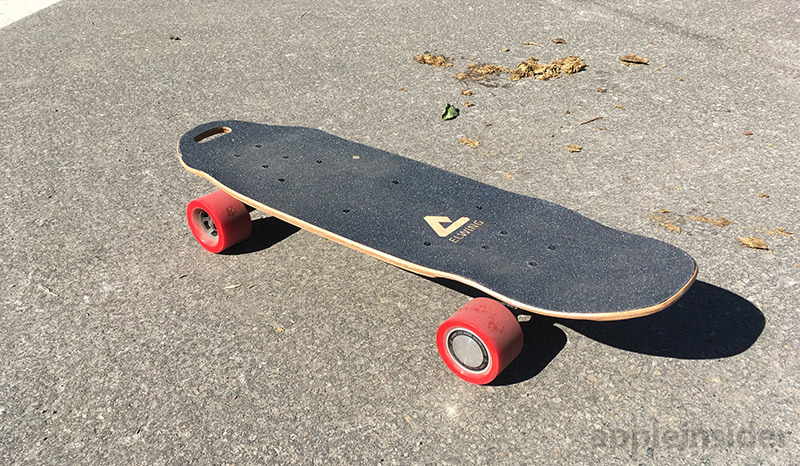
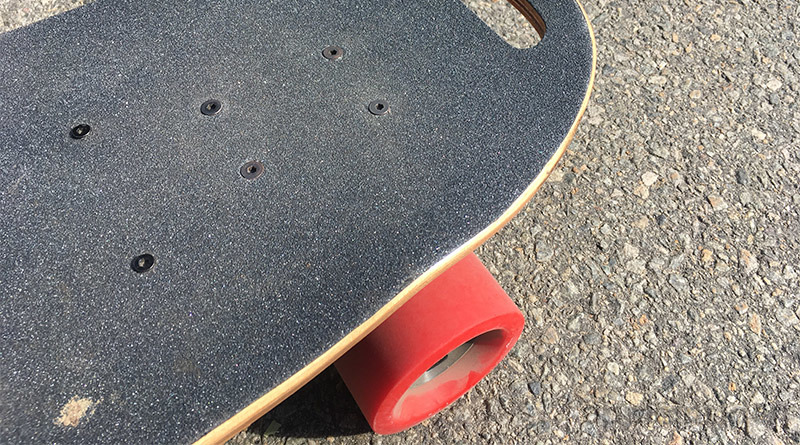
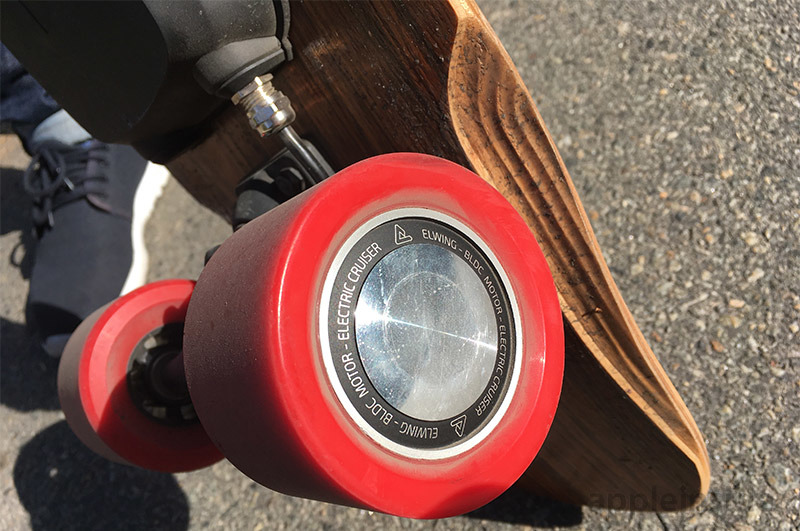
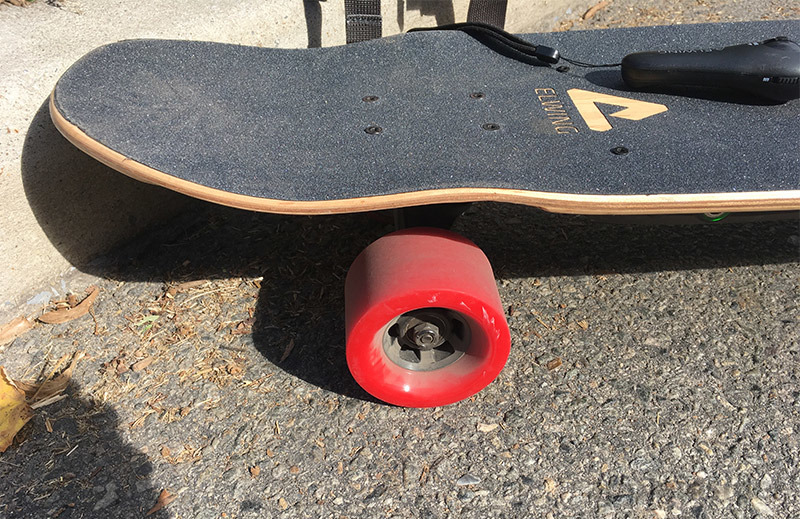
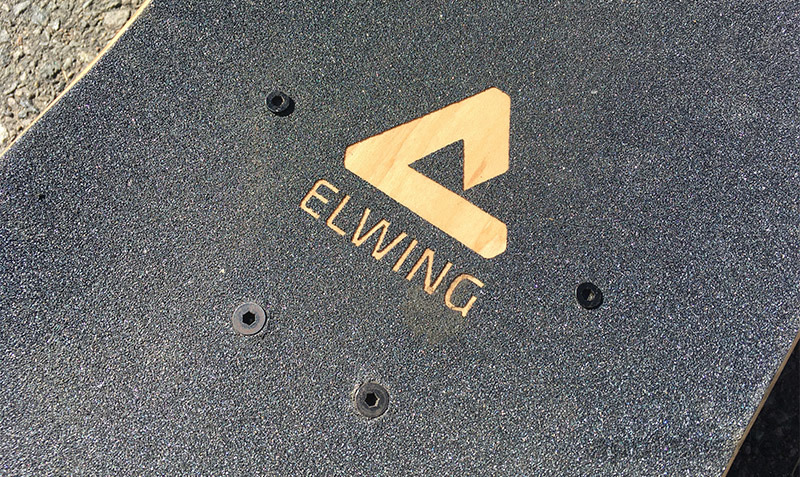
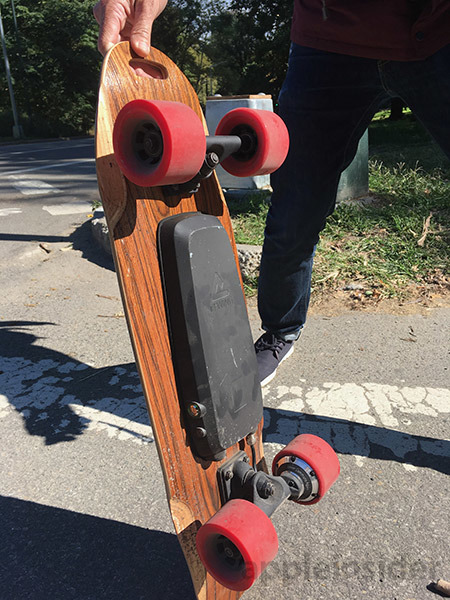
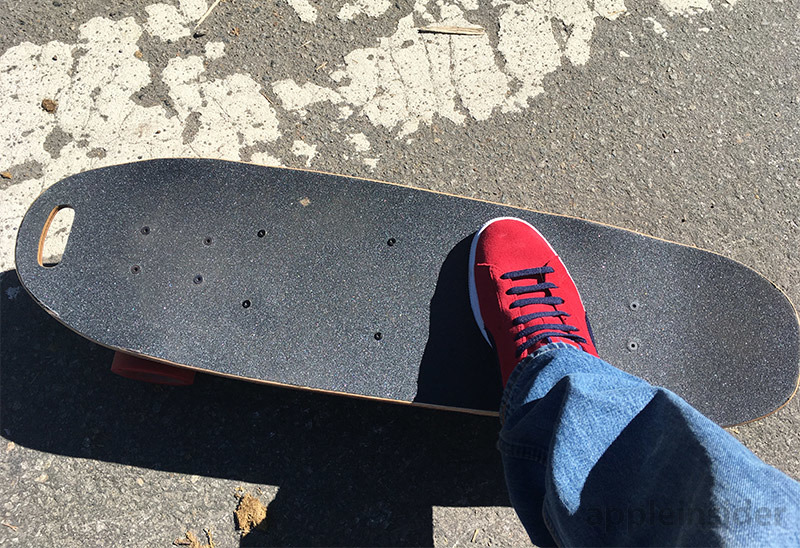

-m.jpg)





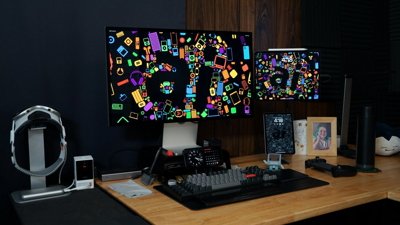
 Wesley Hilliard
Wesley Hilliard
 Christine McKee
Christine McKee
 William Gallagher
William Gallagher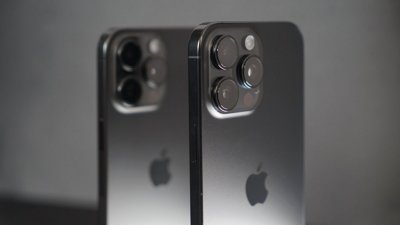
 Andrew Orr
Andrew Orr


 Andrew O'Hara
Andrew O'Hara
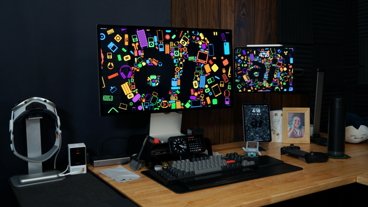
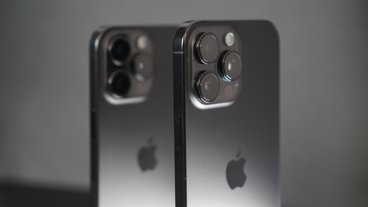





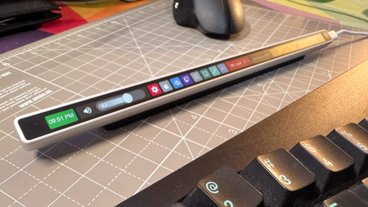
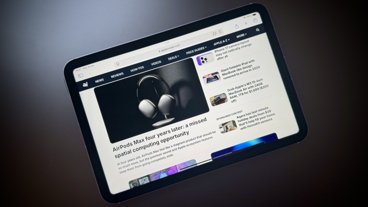

9 Comments
Isn't a battery-assisted skateboard kind of like putting lipstick on a pig?
While not my preferred format of transportation. This looks better and more functional than a "hover board" which are pretty popular these days and way better than a Segway or "step bikes" which I see people using and laugh when they go buy. Regarding the software I think they have the right approach. Not like you need the software to use it and in fact it seems they want to discourage use while using the board. But they want to give you the option of tuning the motors so you do kind of need an app. This board is not a pig though.